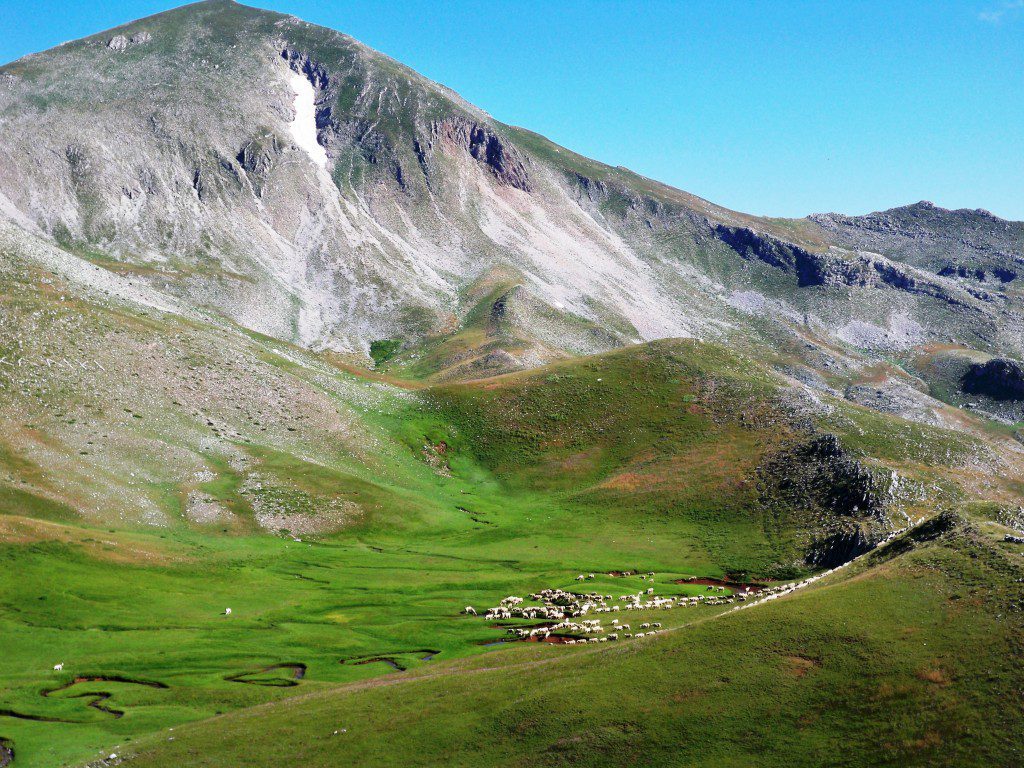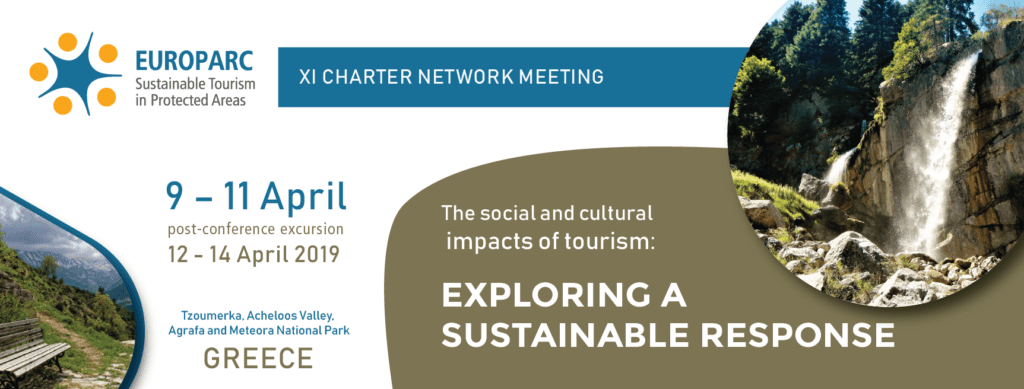Lessons from Greece: Protected Areas are key to local economic development
Sokratis Famellos, Alternate Minister for Environment and Energy of Greece at the XI Charter Network Meeting in Greece, April 2019
The Management Bodies of Protected Areas should contribute to local economic development

Serafeim Felekis
Article by Serafeim Felekis, President of Tzoumerka, Valley of Acheloos River, Agrafa and Meteora National Park
The Alternate Minister for Environment and Energy of Greece, Sokratis Famellos, was one of the special guests we welcomed at the 11th Charter Network Meeting. During his speech, Mr Famellos focused on the development perspective of the environment, specifically stating that
environment is life and economy.
He further highlighted the controversy between European policies that were imposed on Greece during the economic crisis: not only were these policies in full contradiction with the UN Sustainable Development Goals, creating more poverty, unemployment and limiting access to basic goods and services, but they were also opposed to environmental protection.
Past decisions
The Alternate Minister noted the former decision to close down Management Bodies responsible for the protection and management of Protected Areas in Greece, in an effort to cut down government spending. This decision was taken at the same time when the European Commission was imposing penalties to Greece because of gaps in the implementation of the European legislation for the management of Protected Areas.
‘This was the situation back in 2015’, said the Alternate Minister. ‘Now, we need to be aware that the forthcoming European elections are critical, because their result will also determine the future of the European Environmental agenda: whether progressive policies will be developed and implemented also for the environment and towards the UN Sustainable Development Goals.’
He further explained that Greece is a very rich country in terms of biodiversity, hosting many species that are unique across Europe. With Southern Europe being a biodiversity hotspot for the European Union, the European Union should, in turn, apply coherent policies that protect and conserve this unique natural capital.

The Tzoumerka, Valley of Acheloos River, Agrafa and Meteora National Park is one of the largest Parks in Greece, providing social and economic benefits to the local communities.
The urge for action
From 2015 and onwards, Greece decided that there was no more time to lose in any environmental policy field. Major steps included:
- The implementation of integrated waste management throughout the country, enabling and motivating local authorities towards recycling and investing in modern waste management infrastructure;
- The issue of the updated and enhanced catalogue of Natura 2000 areas in December 2017;
- The institutionalization, by law, of Management Bodies for all Protected Areas across Greece, also foreseeing for the first time that these will be funded by the central government budget. As direct consequence, all employees working in Management Bodies have the opportunity, to obtain, through a transparent process managed by the Supreme Council for Civil Personnel Selection (in Greek: ASEP), a permanent employment status, in the area where they have been working all these years.
- The launch of two very important projects, for all Protected Areas:
- Specific environmental studies that map and assess the impacts of land uses and economic activities in all Natura 2000 areas, so as to develop the relevant Presidential Decrees regulating such uses/activities and the Action Plans for protected species (total budget of 17.5 MEuro)
- The 8-year LIFE Integrated Project LIFE-IP 4NATURA, which also develops specific tools for biodiversity conservation in Protected Areas (budget 17 MEuro).
The Commitment
The Alternate Minister also noted that together with biodiversity protection and implementation of the relevant International Conventions and legislation,
Management Bodies now also have to contribute to the local economy and catalyse local production growth.
‘We need local output and activities that are competitive and extrovert, bearing the designation of the areas that produce them. The evaluation of the operation of all Management Bodies will also assess their contribution to the development of the primary and secondary sectors, and also of eco-tourism and agro-tourism activities.
They will also be evaluated in terms of developing opportunities for local employment, not only for the employees of the Management Bodies themselves but also for all of the rural population in the corresponding areas.
Planning is over, now is the time to act and implement. I am thus asking everyone to contribute to the much-needed change of our paradigm for economic development, creating new development and new economic output’, committed the Alternate Minister.

Read the outcomes of the XI Charter Network Meeting that was host by Tzoumerka National Park